
Grenoble: The Gateway to the Alps
Nestled in the heart of the French Alps, Grenoble is a city that beautifully blends rich history with modern vibrancy. Known for its stunning natural surroundings, Grenoble offers a panoramic view of towering mountains, making it a haven for outdoor enthusiasts and nature lovers alike. The city is often referred to as the 'Capital of the Alps' due to its prime location and breathtaking alpine scenery. Grenoble’s historic center is a treasure trove of ancient architecture and cultural landmarks. Stroll through the cobblestone streets to discover the Grenoble Cathedral and the Museum of Grenoble, which houses an impressive collection of art spanning centuries. The Bastille, a fortress perched high above the city, is accessible via a scenic cable car ride, offering unparalleled views of the urban landscape and the surrounding peaks. Beyond its historical and natural attractions, Grenoble is a hub of innovation and education, home to several renowned universities and research institutions. The vibrant student population contributes to a lively arts scene, with numerous galleries, theaters, and music venues. The city's culinary offerings are equally impressive, featuring both traditional French cuisine and international flavors, ensuring a delightful dining experience for every palate.
Local tips in Grenoble
- Take the cable car to the Bastille for the best views of the city and the Alps.
- Visit the Museum of Grenoble for a deep dive into art history, featuring works from the Middle Ages to contemporary pieces.
- Enjoy a stroll along the Isère River, especially at sunset for a picturesque experience.
- Explore the local markets, such as the Estacade Market, for fresh produce and regional specialties.
- Use public transportation or rent a bike to get around the city easily and efficiently.
Grenoble: The Gateway to the Alps
Nestled in the heart of the French Alps, Grenoble is a city that beautifully blends rich history with modern vibrancy. Known for its stunning natural surroundings, Grenoble offers a panoramic view of towering mountains, making it a haven for outdoor enthusiasts and nature lovers alike. The city is often referred to as the 'Capital of the Alps' due to its prime location and breathtaking alpine scenery. Grenoble’s historic center is a treasure trove of ancient architecture and cultural landmarks. Stroll through the cobblestone streets to discover the Grenoble Cathedral and the Museum of Grenoble, which houses an impressive collection of art spanning centuries. The Bastille, a fortress perched high above the city, is accessible via a scenic cable car ride, offering unparalleled views of the urban landscape and the surrounding peaks. Beyond its historical and natural attractions, Grenoble is a hub of innovation and education, home to several renowned universities and research institutions. The vibrant student population contributes to a lively arts scene, with numerous galleries, theaters, and music venues. The city's culinary offerings are equally impressive, featuring both traditional French cuisine and international flavors, ensuring a delightful dining experience for every palate.
When is the best time to go to Grenoble?
Iconic landmarks you can’t miss
Fort de La Bastille
Ascend to Fort de la Bastille for panoramic views, historical insights, and a thrilling cable car ride above Grenoble.
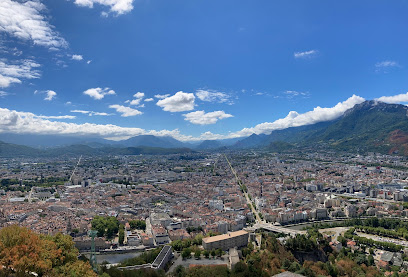
Parc Paul Mistral
Discover Grenoble's largest park: a vibrant green space with history, recreation, and cultural events for everyone to enjoy.
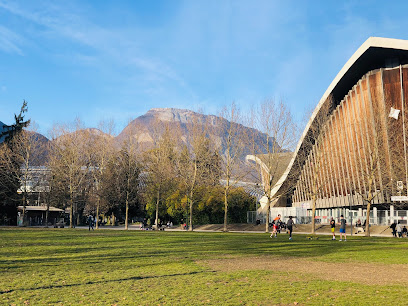
Jardin de Ville
Discover Grenoble's historic Jardin de Ville: a green oasis with gardens, statues, and events in the heart of the city, open year-round.
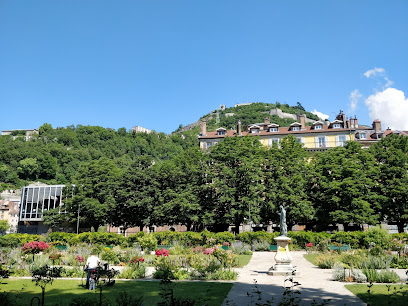
Jardin des Dauphins
Escape to Grenoble's Jardin des Dauphins: a historic terraced garden with stunning views, diverse flora, and family-friendly fun.
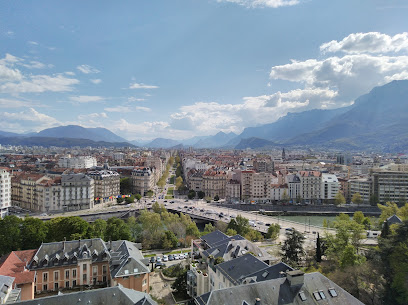
Musée de Grenoble
Explore centuries of Western art at Musée de Grenoble, from classical masterpieces to modern and contemporary treasures. A cultural journey awaits!
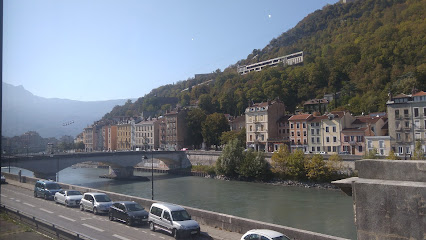
Téléphérique
Ascend to the Bastille in Grenoble's iconic 'bubbles' for panoramic views of the city and Alps. A historic and breathtaking experience!
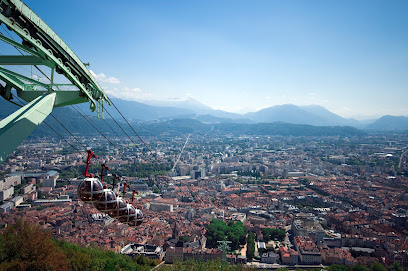
Musée dauphinois
Explore Alpine history and culture at Musée Dauphinois, housed in a historic Grenoble convent.
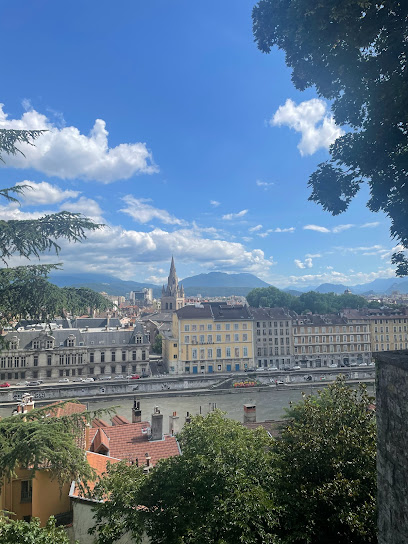
Musée archéologique Saint-Laurent
Uncover Grenoble's past in a unique archaeological site, exploring centuries of history from early Christian tombs to a remarkable Merovingian crypt.
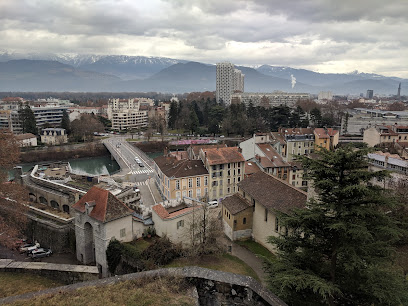
Fort of the Saint-Eynard
Explore a 19th-century fortress in the Chartreuse Mountains with panoramic views of Grenoble and the surrounding valleys. Open to the public.
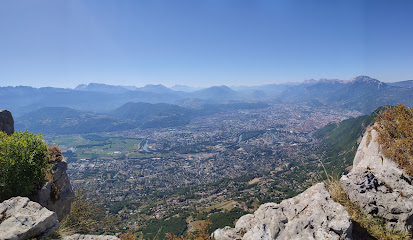
Porte de France
Discover Grenoble's past at the Porte de France, a historic gate and monument offering a glimpse into the city's rich heritage.
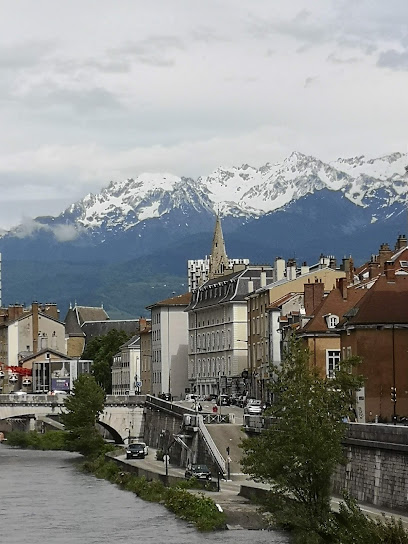
Fontaine au Lion
Discover Grenoble's Fontaine au Lion: Where art, history, and local symbolism converge in a stunning 19th-century sculpture.
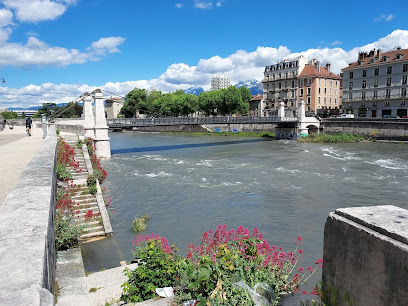
Museum of the Resistance and Deportation of Isère
Explore the history of the French Resistance and deportation in Isère at this moving and educational museum in Grenoble.
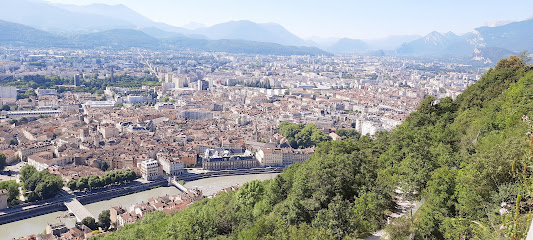
Musée de l'Ancien Évêché
Explore the rich ecclesiastical history and stunning architecture at the Musée de l'Ancien Évêché in Grenoble.
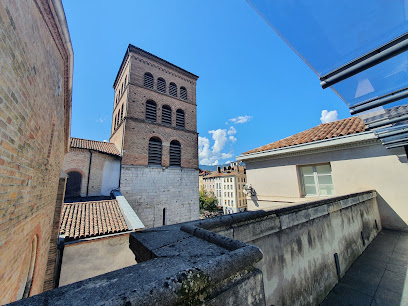
Gare de Grenoble
Experience Grenoble: Begin your Alpine adventure at the Gare de Grenoble, connecting you to the heart of the city and beyond.
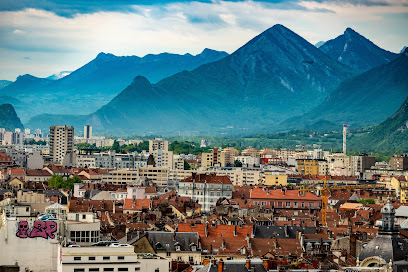
Halles Sainte-Claire
Discover local flavors at Grenoble's historic covered market, a vibrant hub for regional produce and culinary delights in a stunning 19th-century setting.
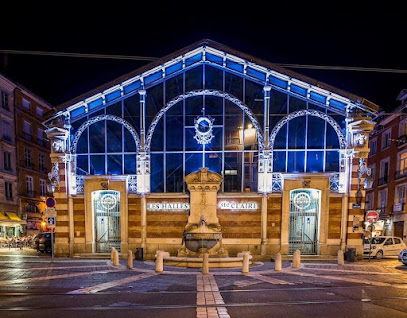
Unmissable attractions to see
Fort de La Bastille
Discover the breathtaking views and rich history of Fort de La Bastille, a stunning fortress offering a unique perspective of Grenoble and the French Alps.
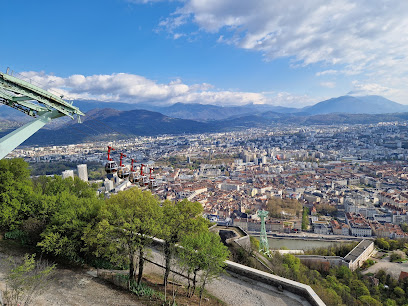
Grotte de Choranche
Discover the breathtaking Grotte de Choranche, a stunning cave system in the Vercors region, filled with mesmerizing stalactite formations and rich geological history.
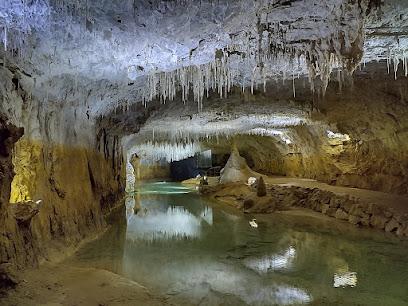
Parc Paul Mistral
Explore the tranquil beauty of Parc Paul Mistral, an urban oasis in Grenoble perfect for relaxation, picnics, and enjoying nature's charm.
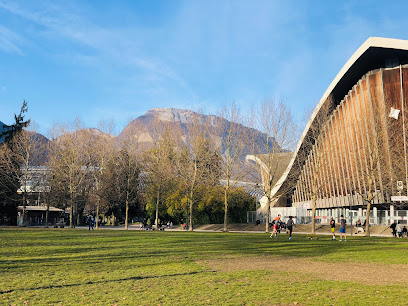
Jardin des Dauphins
Explore the lush landscapes and tranquil beauty of Jardin des Dauphins, a hidden gem in the heart of Grenoble, perfect for relaxation and exploration.
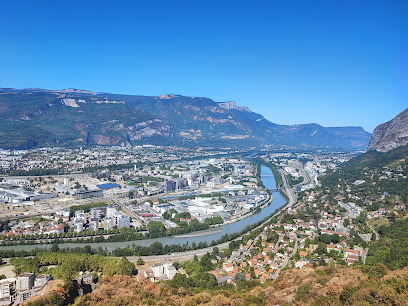
Musée de Grenoble
Explore the rich collections and stunning exhibits at the Musée de Grenoble, a cultural gem in the heart of France.
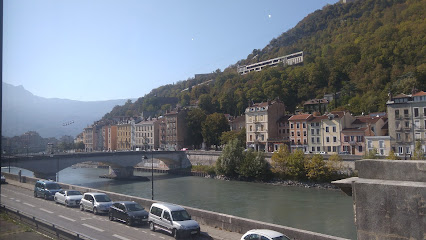
Château des Ducs de Savoie
Explore the majestic Château des Ducs de Savoie in Chambéry, a stunning castle steeped in history and surrounded by breathtaking landscapes.
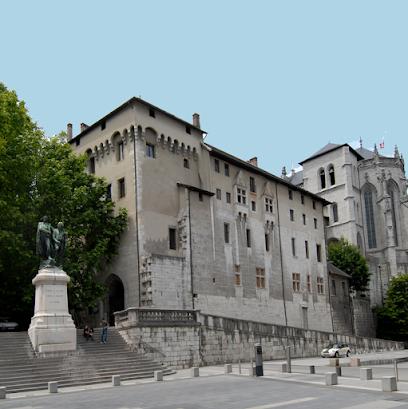
Musée dauphinois
Explore the rich history and culture of the Dauphiné region at the Musée Dauphinois in Grenoble, a must-visit destination for every traveler.
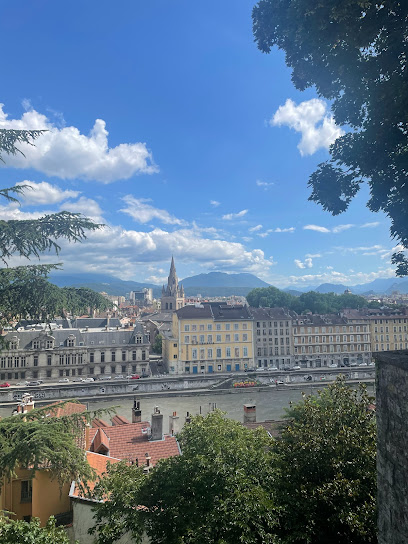
Musée archéologique Saint-Laurent
Explore the fascinating artifacts of the past at Musée Archéologique Saint-Laurent in Grenoble, a captivating journey through time awaits.
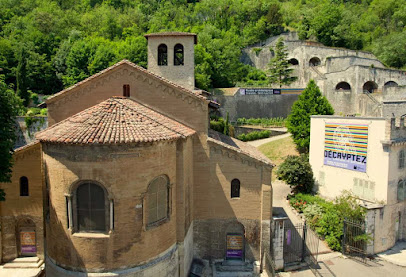
Fontaine au Lion
Explore the Fontaine au Lion in Grenoble, a stunning historical landmark showcasing exquisite craftsmanship and a symbol of artistic heritage.
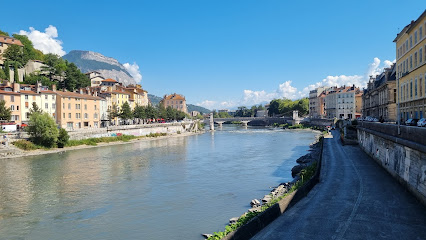
Museum of the Resistance and Deportation of Isère
Explore the Museum of the Resistance and Deportation of Isère in Grenoble, where history comes alive through powerful exhibits and personal stories of bravery.
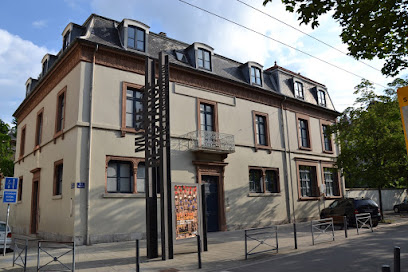
Musée de l'Ancien Évêché
Explore the rich history and stunning architecture of Grenoble at the Musée de l'Ancien Évêché, a premier cultural destination.
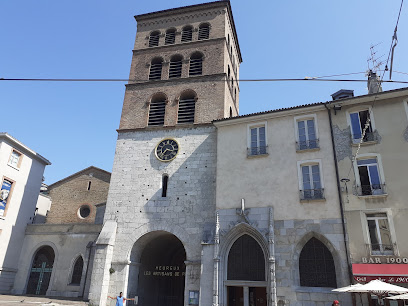
Parc Georges Pompidou
Explore the tranquil beauty of Parc Georges Pompidou, a lush urban park in Grenoble offering relaxation and outdoor activities for all ages.
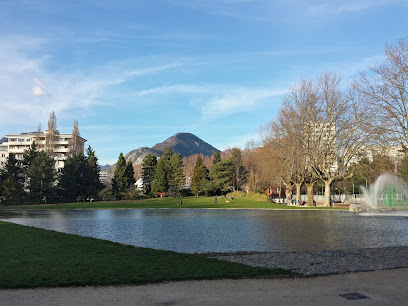
Parc De Buisson-Rond
Experience the serene beauty and historical charm of Parc De Buisson-Rond, a tranquil city park in the heart of Chambéry, France.
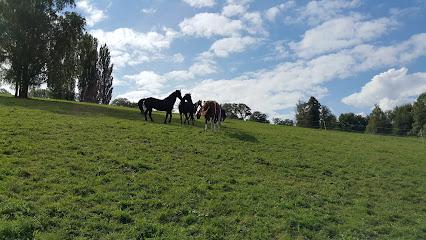
Cathédrale Notre-Dame
Discover the breathtaking Cathédrale Notre-Dame in Grenoble, an architectural masterpiece blending history, spirituality, and stunning artistry.
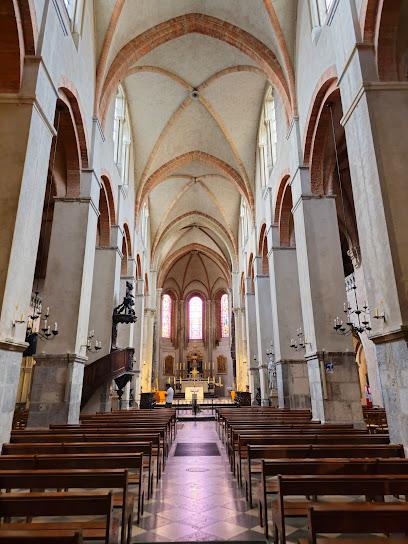
Musée Savoisien
Explore the Savoie region's rich history at Musée Savoisien in Chambéry, where local culture and heritage come alive through captivating exhibits.
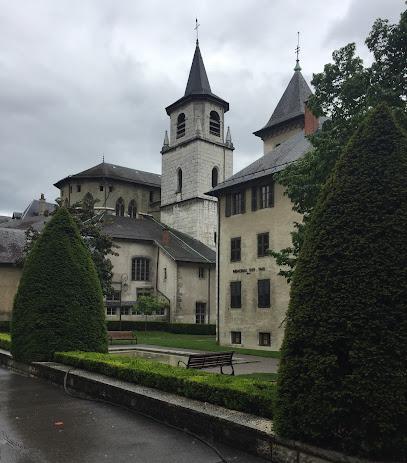
Essential places to dine
La Ferme à Dédé
Experience authentic French cuisine at La Ferme à Dédé in Grenoble - where every meal tells a story.
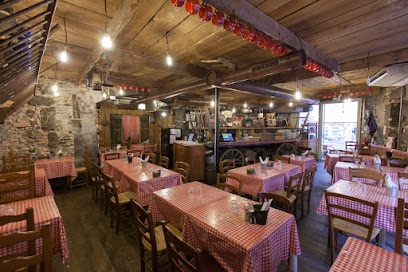
La Ferme à Dédé Grenoble Gare
Savor authentic French cuisine at La Ferme à Dédé in Grenoble - where local flavors meet warm hospitality.
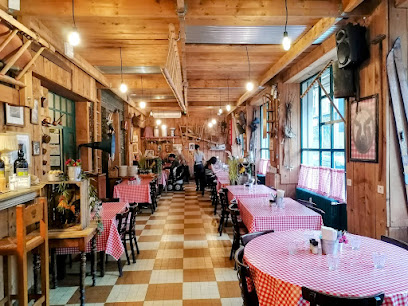
Restaurant L'Ardoise
Savor authentic French cuisine at Restaurant L'Ardoise in Grenoble – where tradition meets modern culinary artistry.
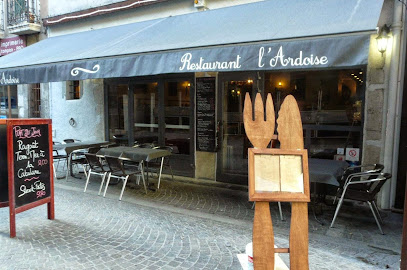
Restaurant L'Épicurien
Experience gourmet French cuisine at Restaurant L'Épicurien in Grenoble - where every meal is an exquisite celebration of flavor and tradition.
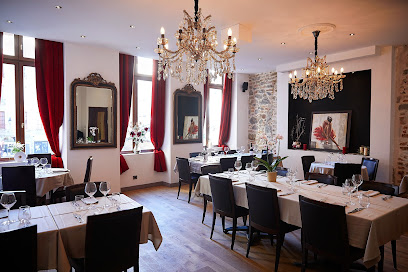
Restaurant La Belle idée
Discover the essence of French cuisine at La Belle Idée in Grenoble—where every dish tells a story.
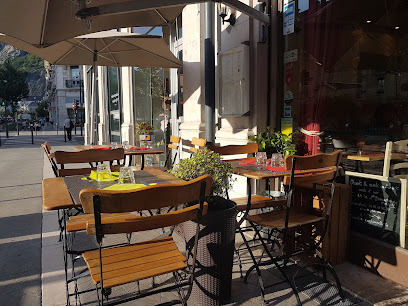
La Fabryk
Experience authentic French cuisine at La Fabryk in Grenoble – where local flavors meet contemporary dining in a vibrant atmosphere.
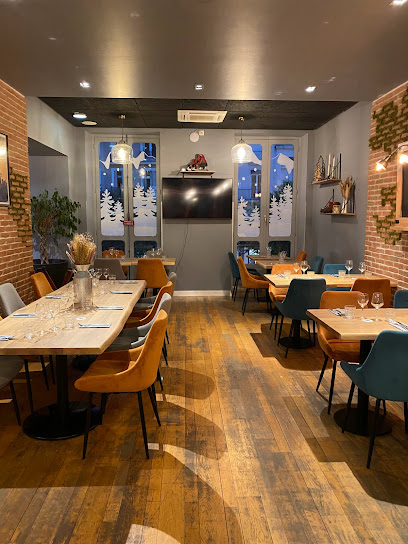
Restaurant Une Semaine sur Deux
Discover authentic French cuisine at Une Semaine sur Deux in Grenoble - where seasonal ingredients meet culinary creativity.
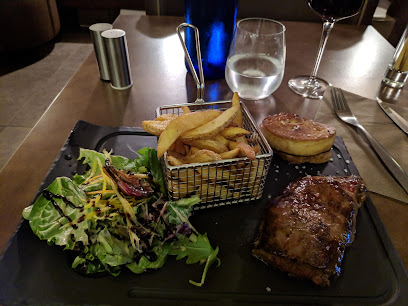
Restaurant le coq hardi
Discover exquisite French cuisine in the heart of Grenoble at Restaurant le Coq Hardi – where every meal is a celebration of flavor.
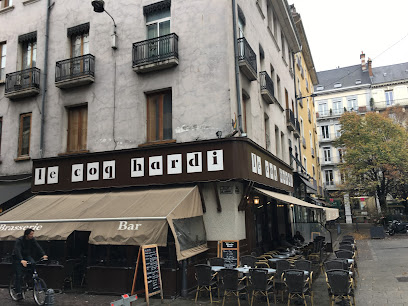
Maison Fantin Latour - Stéphane Froidevaux
Experience exquisite haute French cuisine at Maison Fantin Latour in Grenoble - where tradition meets innovation in every dish.
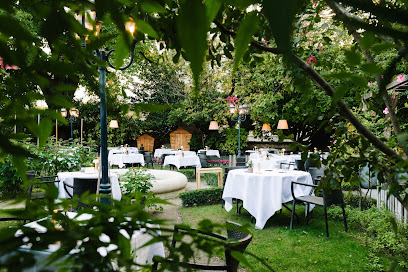
Restaurant Tchoutchoura
Experience authentic Bulgarian cuisine blended with Mediterranean influences at Restaurant Tchoutchoura in Grenoble.
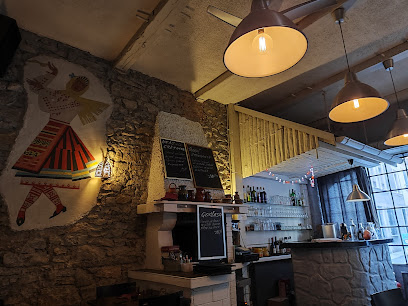
L'Akagera Grenoble. Café & bistrot-brunch et Bar
Discover a delightful blend of modern French and African cuisines at L'Akagera Grenoble—a must-visit bistro for food enthusiasts.
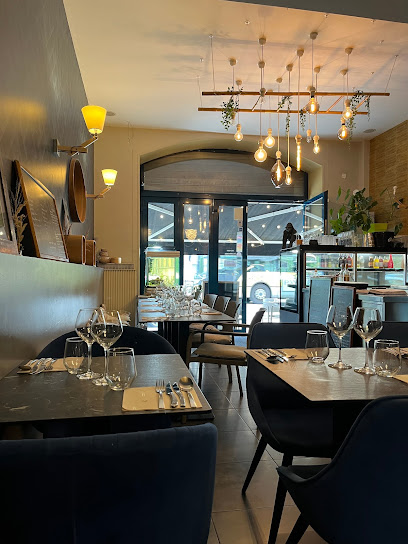
Ciao a Te
Discover authentic Italian cuisine at Ciao a Te in Grenoble, where every dish captures the essence of Italy's rich culinary heritage.
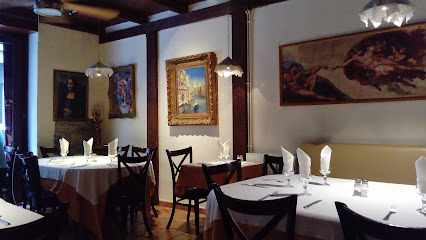
Restaurant Le Seven - Français
Discover exquisite French and Mediterranean cuisine at Restaurant Le Seven in Grenoble - where every meal is a delightful journey through flavors.
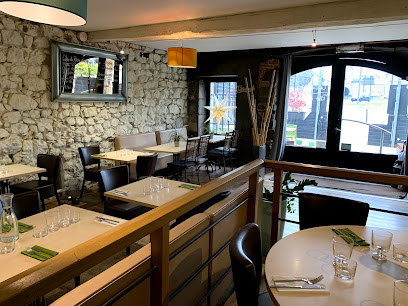
Restaurant Katmandou - Les Saveurs de l'Himalaya
Experience authentic Nepalese and Tibetan flavors at Restaurant Katmandou in Grenoble – A true taste of the Himalayas awaits!
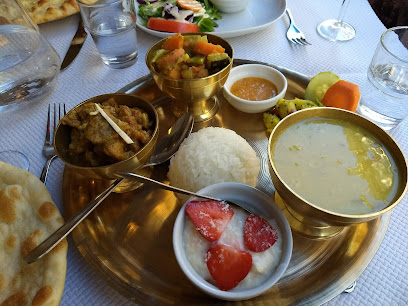
Restaurant Les Jardins de Sainte Cécile
Experience exquisite French fine dining at Restaurant Les Jardins de Sainte Cécile in Grenoble, where culinary artistry meets elegant ambiance.
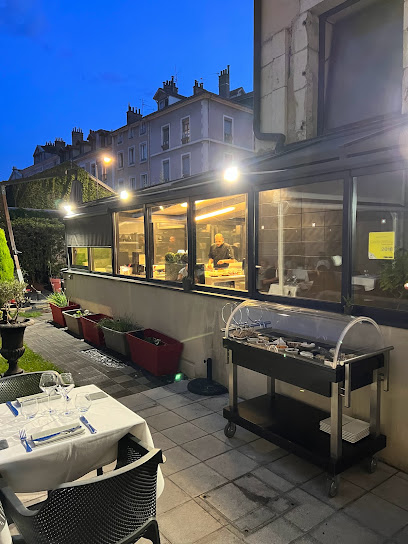
Markets, malls and hidden boutiques
Grand'Place
Discover the ultimate shopping experience at Grand'Place in Grenoble, where fashion meets convenience in a vibrant atmosphere.
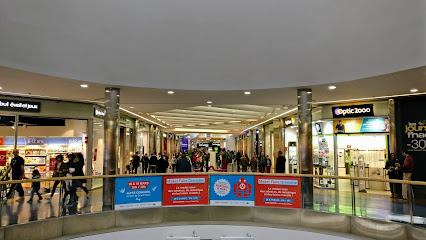
La caserne de Bonne
Explore La Caserne de Bonne, a vibrant shopping mall in Grenoble, combining history with modernity offering shopping, dining, and entertainment.
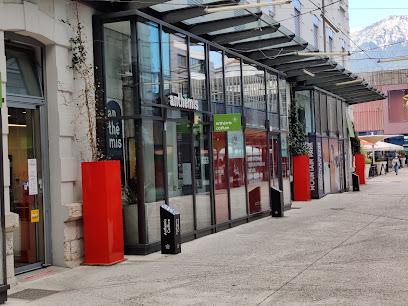
Galeries Lafayette Grenoble
Discover Galeries Lafayette Grenoble: A premier destination for fashion, beauty, and home goods, embodying the spirit of French shopping culture.
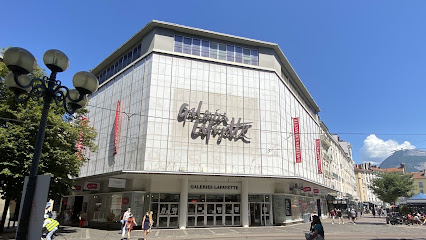
Nature and Discoveries
Explore Nature and Discoveries in Grenoble, your go-to gift shop for eco-friendly souvenirs and nature-inspired products that capture the spirit of the Isère region.
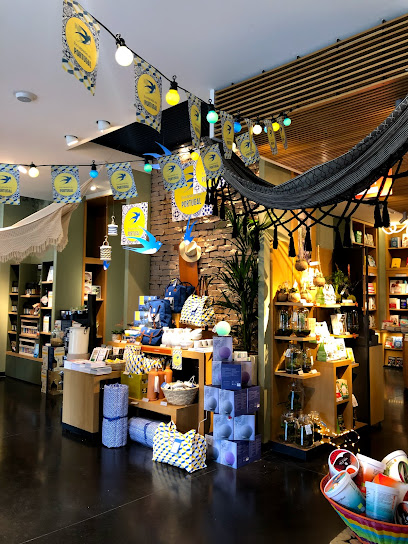
Store Orange Center Grenette - Grenoble
Explore Orange Center Grenette in Grenoble for all your mobile and internet service needs in a vibrant plaza atmosphere.
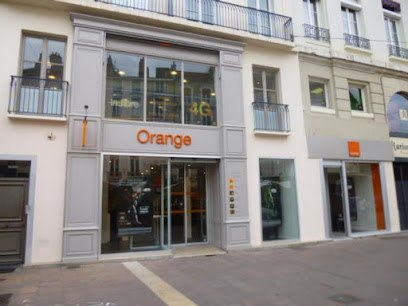
Galerie commerciale K'store
Explore K'store Shopping Gallery: A Premier Retail Destination in Grenoble with Diverse Shopping and Dining Experiences.
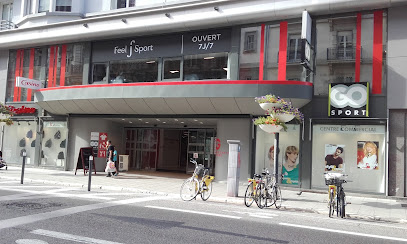
Matt Store Is, Épicerie Américaine, Canadienne, Québécoise et Anglo-Saxonne
Explore the finest American and Canadian gourmet products at Matt Store in Grenoble - your gateway to North American flavors!
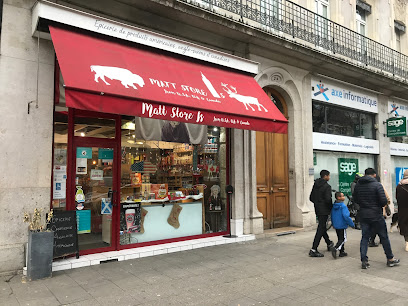
Boutique Harry Potter de Grenoble Les Surprises De Brigitte
Explore an enchanting gift shop dedicated to Harry Potter in the heart of Grenoble, perfect for fans seeking magical memorabilia and unique treasures.
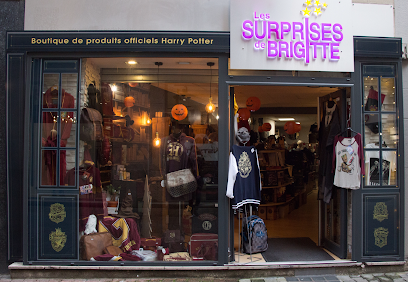
Lacoste
Discover the stylish offerings at Lacoste in Grenoble, where fashion meets comfort for the whole family.
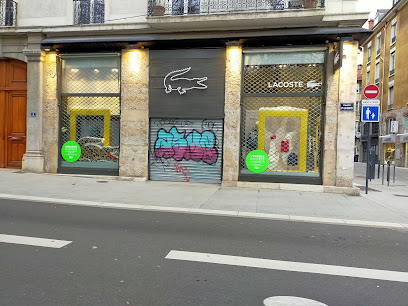
Pylones
Explore Pylones in Grenoble, a unique gift shop offering whimsical home décor, stylish jewelry, and playful collectibles that are perfect for any occasion.
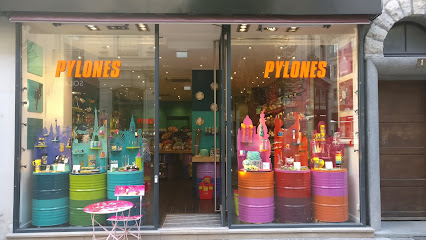
Le Comptoir Irlandais Grenoble
Explore Le Comptoir Irlandais in Grenoble for unique Irish gifts, clothing, and gourmet foods that capture the essence of Ireland.
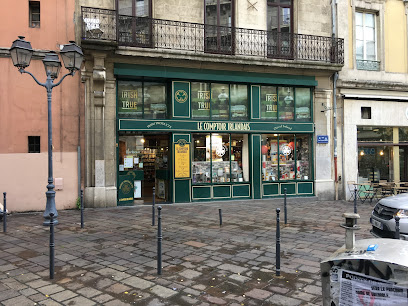
Etam Lingerie et Prêt-à-porter
Explore stylish lingerie and women's clothing at Etam Lingerie et Prêt-à-porter, a boutique gem in the heart of Grenoble.
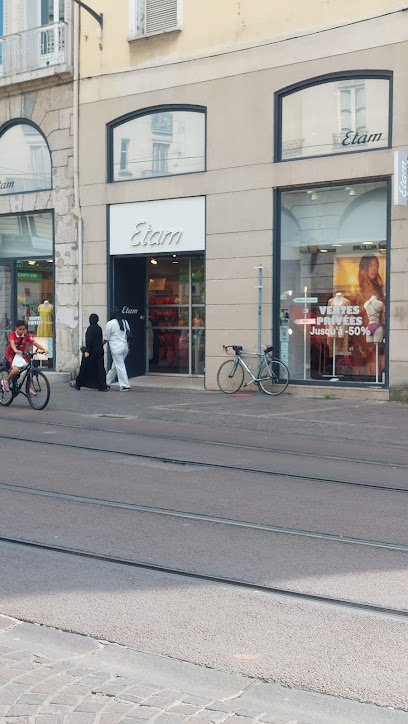
Emmaüs Grenoble - Boutique en Ville
Explore Emmaüs Grenoble, a second-hand store where every purchase supports charitable causes and sustainable practices amidst a treasure trove of unique finds.
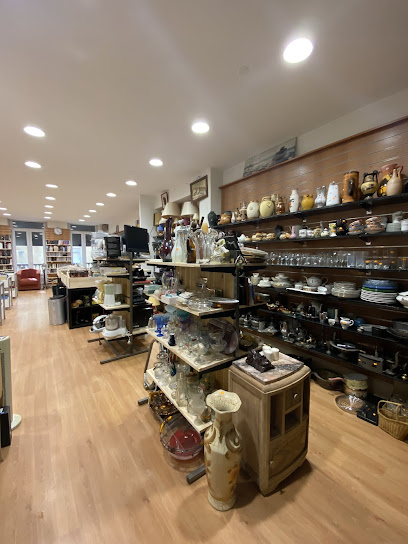
Mad Vintage
Discover the charm of vintage fashion at Mad Vintage in Grenoble, where timeless style meets sustainability in a delightful shopping experience.
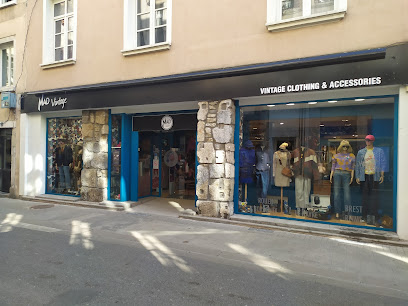
A Fleur de Peau
Discover the elegance of French lingerie at A Fleur de Peau in Grenoble, where exquisite designs and personalized service await.
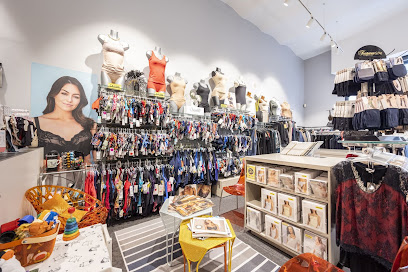
Essential bars & hidden hideouts
Les Berthom
Experience the vibrant nightlife of Grenoble at Les Berthom, where craft beer, cocktails, and tapas come together in a lively atmosphere.
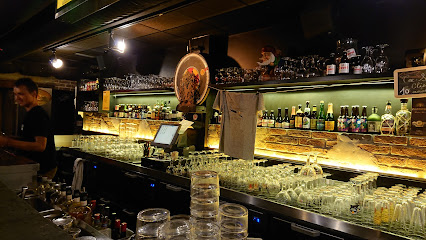
BARBEROUSSE GRENOBLE
Discover the heart of Grenoble's nightlife at Barberousse, a vibrant live music bar serving up unforgettable experiences and local flavors.
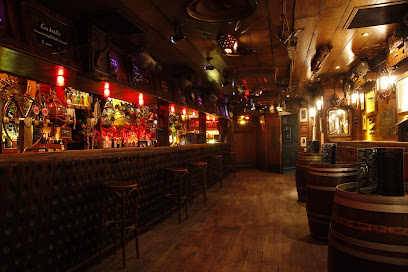
Le Champollion Bar
Experience the vibrant atmosphere of Le Champollion Bar in Grenoble, where good drinks and great company come together in a cozy setting.
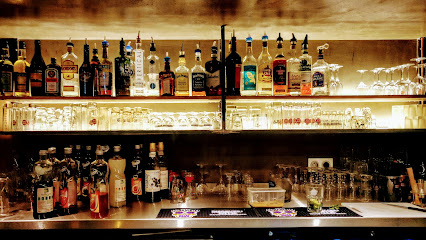
The Korner Pub
Experience the warm hospitality of Ireland at The Korner Pub, a lively gathering spot in Grenoble serving traditional dishes and a wide selection of drinks.
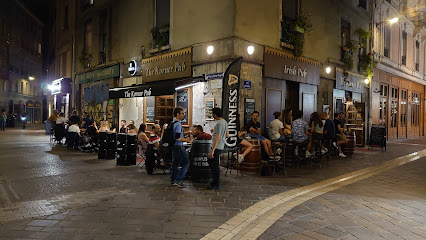
Bar Le Tord Boyaux
Discover the vibrant atmosphere of Bar Le Tord Boyaux in Grenoble, where unique drinks and a welcoming ambiance await every visitor.
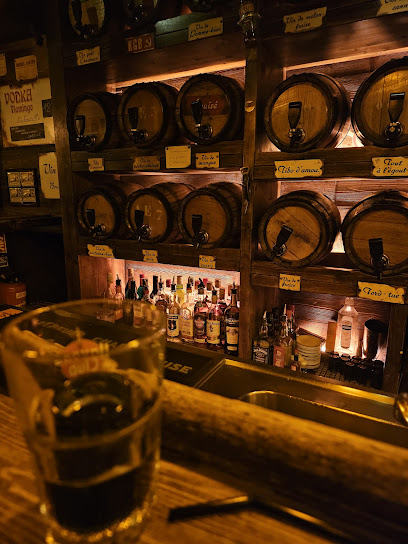
BLIND PIG
Discover Blind Pig, Grenoble's premier cocktail bar, where innovative drinks and a vibrant atmosphere come together for an unforgettable night out.
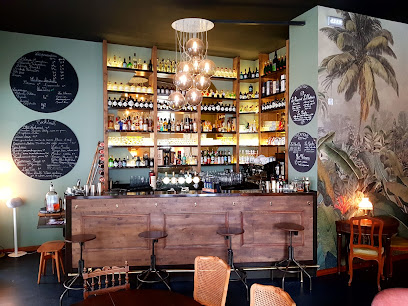
The London Pub
Discover The London Pub in Grenoble, where British charm meets French hospitality in a lively atmosphere perfect for relaxation and socializing.
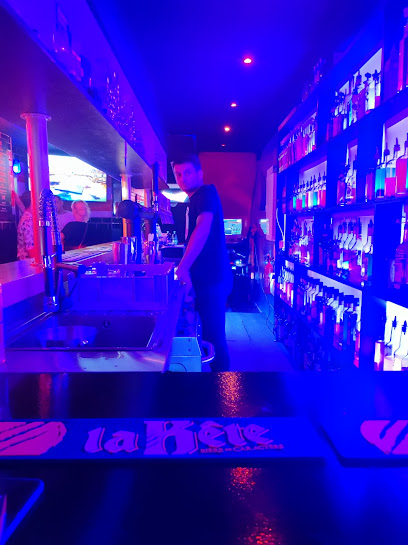
Bar Phenomen
Discover Bar Phenomen, a vibrant bar in Grenoble offering craft beers, cocktails, and a lively atmosphere perfect for socializing and entertainment.
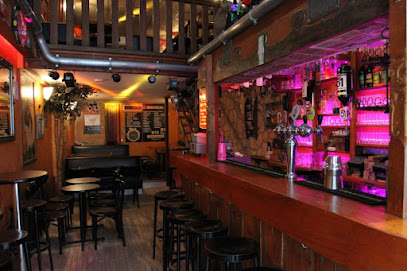
Le Zinc
Experience the charm of Le Zinc, a cozy wine bar in Grenoble offering exquisite wines and delicious small plates in a warm atmosphere.
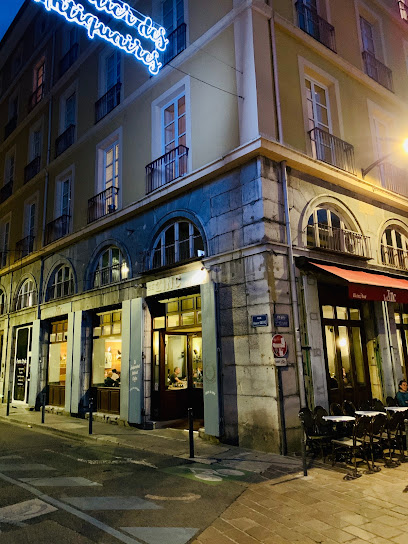
Le Couche Tard PUB
Discover the vibrant atmosphere of Le Couche Tard PUB in Grenoble, where great drinks and delicious food await in a cozy setting.
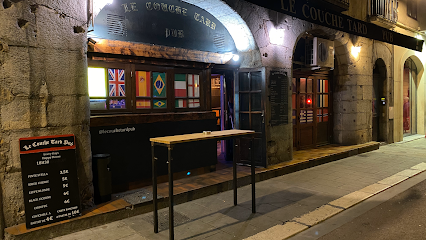
Keep It Weird
Discover the vibrant atmosphere of Keep It Weird in Grenoble, a must-visit beer hall and cocktail bar for an unforgettable night out.
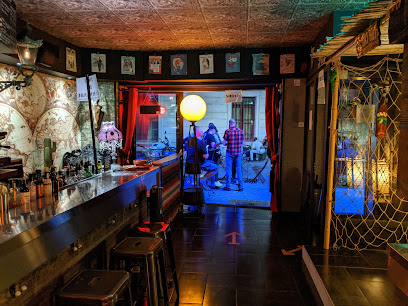
Bacetto - Bar & Beer - Bar Sportif
Experience the vibrant atmosphere at Bacetto, Grenoble's go-to beer hall offering a wide selection of craft beers and wines in a lively setting.
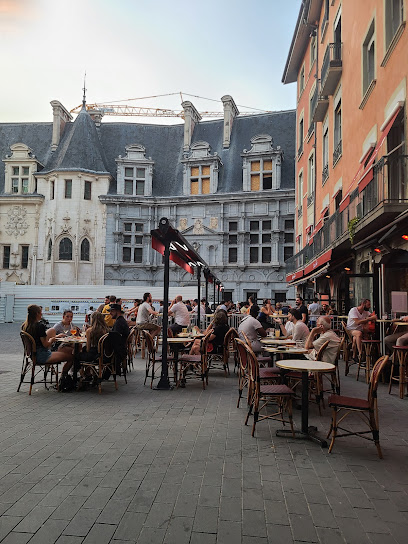
Pharaon Pub
Experience the vibrant nightlife of Grenoble at Pharaon Pub, where live music, cocktails, and great company come together for an unforgettable evening.
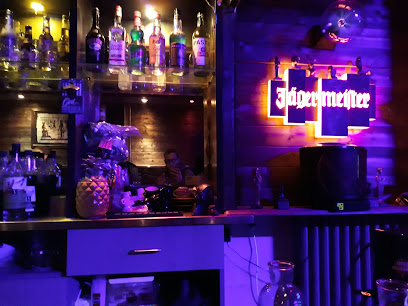
La Girafe
Discover the lively atmosphere of La Girafe, a premier pub in Grenoble blending sports, wine, and relaxation for an unforgettable night out.
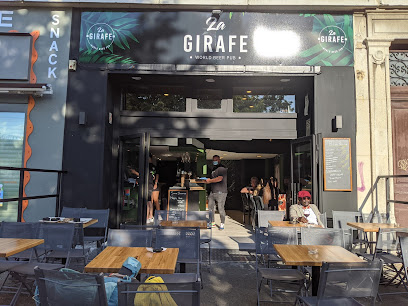
Local Phrases
-
- HelloBonjour
[bon-zhoor] - GoodbyeAu revoir
[oh rev-wah] - YesOui
[wee] - NoNon
[nohn] - Please/You're welcomeS'il vous plaît / De rien
[seel voo pleh / duh ryehn] - Thank youMerci
[mehr-see] - Excuse me/SorryExcusez-moi / Désolé
[ex-kew-zay mwa / day-zoh-lay] - How are you?Comment ça va?
[koh-mohn sah vah] - Fine. And you?Bien. Et toi?
[byen. ay twah] - Do you speak English?Parlez-vous anglais?
[par-lay voo ahn-glay] - I don't understandJe ne comprends pas
[zhuh nuh kohm-prahnd pah]
- HelloBonjour
-
- I'd like to see the menu, pleaseJe voudrais voir la carte, s'il vous plaît
[zhuh voo-dray vwahr lah kart, seel voo pleh] - I don't eat meatJe ne mange pas de viande
[zhuh nuh mahnj pah duh vyand] - Cheers!Santé!
[sahn-tay] - I would like to pay, pleaseJe voudrais payer, s'il vous plaît
[zhuh voo-dray pay-ay, seel voo pleh]
- I'd like to see the menu, pleaseJe voudrais voir la carte, s'il vous plaît
-
- Help!Au secours!
[oh seh-koor] - Go away!Allez-vous en!
[al-lay voo zahn] - Call the Police!Appelez la police!
[ah-puh-lay lah poh-lees] - Call a doctor!Appelez un médecin!
[ah-puh-lay uh meh-duh-sahn] - I'm lostJe suis perdu
[zhuh swee pair-doo] - I'm illJe suis malade
[zhuh swee mah-lahd]
- Help!Au secours!
-
- I'd like to buy...Je voudrais acheter...
[zhuh voo-dray zah-shay...] - I'm just lookingJe regarde juste
[zhuh ruh-gahrd zhoost] - How much is it?Combien ça coûte?
[kohm-byen sah koot] - That's too expensiveC'est trop cher
[say troh shair] - Can you lower the price?Pouvez-vous baisser le prix?
[poo-vay voo bay-say luh pree]
- I'd like to buy...Je voudrais acheter...
-
- What time is it?Quelle heure est-il?
[kell uhr ay-eel] - It's one o'clockIl est une heure
[eel ay oon uhr] - Half past (10)Dix et demi
[dees ay duh-mee] - MorningMatin
[mah-tan] - AfternoonAprès-midi
[ah-pray mee-dee] - EveningSoir
[swahr] - YesterdayHier
[yehr] - TodayAujourd'hui
[oh-zhoor-dwee] - TomorrowDemain
[duh-mahn] - 1Un
[uhn] - 2Deux
[duh] - 3Trois
[twah] - 4Quatre
[kah-truh] - 5Cinq
[sank] - 6Six
[sees] - 7Sept
[sept] - 8Huit
[weet] - 9Neuf
[nurf] - 10Dix
[dees]
- What time is it?Quelle heure est-il?
-
- Where's a/the...?Où est un/le...?
[oo ay uh/luh] - What's the address?Quelle est l'adresse?
[kell ay lah-dress] - Can you show me (on the map)?Pouvez-vous me montrer (sur la carte)?
[poo-vay voo muh mohn-tray (soor lah kart)] - When's the next (bus)?Quand est le prochain (bus)?
[kahn ay luh proh-shahn (boos)] - A ticket (to ....)Un billet (pour ....)
[uhn bee-yay (poor)]
- Where's a/the...?Où est un/le...?
History of Grenoble
-
Grenoble's history dates back to ancient times when it was known as Cularo. Founded by the Allobroges, a Gallic tribe, Cularo became a significant settlement due to its strategic location at the crossroads of the Roman road from Vienne to Italy. In 292 AD, the Roman Emperor Diocletian recognized its importance and fortified the city, renaming it Gratianopolis after Emperor Gratian. This marked the beginning of Grenoble's transformation into a regional power.
-
During the Middle Ages, Grenoble flourished under the rule of the Counts of Albon, who later became the Dauphins of Viennois. The city's status was elevated in 1349 when the Dauphiné province was sold to France, making it a vital frontier town. Its location near the Alps made it a key military and administrative center, and the construction of the Bastille fortress in the 14th century further solidified its strategic importance.
-
Grenoble played a crucial role in the onset of the French Revolution. On June 7, 1788, the city witnessed the Day of the Tiles, an early and significant uprising against the monarchy. Citizens clashed with royal troops, hurling roof tiles and stones from the rooftops. This event is considered one of the first acts of defiance against King Louis XVI and set the stage for the wider revolutionary movement that would soon engulf France.
-
The 19th century brought significant industrial growth to Grenoble. The city became a hub for hydroelectric power, earning it the nickname 'Capital of the Alps.' Innovations in electricity and the establishment of numerous factories and research institutions fueled economic expansion. Grenoble also became a center for glove-making, with its high-quality gloves gaining international recognition.
-
During World War II, Grenoble was a focal point of the French Resistance. The city's mountainous terrain provided a natural refuge for resistance fighters. Grenoble's citizens played a vital role in the resistance movement, engaging in acts of sabotage and intelligence gathering. The city's liberation on August 22, 1944, was a moment of immense pride and is commemorated annually as a testament to the bravery and resilience of its inhabitants.
-
In the post-war era, Grenoble has continued to grow and evolve, establishing itself as a leading center for scientific research and education. The city is home to numerous universities, research centers, and high-tech industries, particularly in fields such as nanotechnology and biotechnology. Grenoble also boasts a vibrant cultural scene, with numerous museums, theaters, and festivals celebrating its rich history and diverse heritage.
Grenoble Essentials
-
Grenoble is well-connected by various modes of transportation. The nearest international airport is Grenoble Alpes-Isère Airport, approximately 45 kilometers away. From the airport, you can take a shuttle bus, taxi, or rent a car to reach Grenoble. The city is also accessible by train, with regular services from major French cities such as Paris, Lyon, and Marseille. If you prefer driving, Grenoble is conveniently located near the A41, A48, and A51 motorways.
-
Grenoble has an efficient public transportation system, including trams and buses operated by TAG (Transports de l'Agglomération Grenobloise). Tickets can be purchased at tram stops, online, or via mobile apps. Biking is also popular, with many bike rental stations available throughout the city. Taxis and ride-sharing services like Uber are readily available. For those planning to explore the surrounding Alps, renting a car can be a convenient option.
-
The official currency in Grenoble is the Euro (€). Credit cards are widely accepted in hotels, restaurants, and shops. ATMs are plentiful throughout the city, so withdrawing cash is convenient. Smaller businesses and markets may prefer cash, so it's advisable to carry some euros for such occasions.
-
Grenoble is generally a safe city, but like any urban area, it is wise to take standard precautions. Avoid isolated areas at night and keep an eye on your belongings in crowded places. Some neighborhoods, such as Villeneuve, have higher crime rates; tourists are advised to stay cautious when visiting these areas. Always be aware of your surroundings and avoid displaying valuable items openly.
-
In case of emergency, dial 112 for immediate assistance. Grenoble has several hospitals and medical facilities, including the University Hospital Grenoble Alpes. Pharmacies are widely available for minor health issues. It's recommended to have travel insurance that covers medical emergencies.
-
Fashion: Do dress smart-casual, especially when dining out or visiting cultural sites. Avoid overly casual attire in formal settings. Religion: Do respect local customs and traditions, particularly in places of worship. Cover shoulders and knees when visiting churches. Public Transport: Do validate your ticket before boarding trams or buses. Don’t eat or drink on public transport. Greetings: Do greet people with a polite 'Bonjour' and a handshake. Eating & Drinking: Do try local specialties like gratin dauphinois and Chartreuse liqueur. Don’t rush meals; dining is considered a leisurely activity.
-
To experience Grenoble like a local, visit the Saint-Laurent neighborhood for its vibrant atmosphere and historic charm. Enjoy a stroll or bike ride along the Isère River. Try the local markets such as the Marché de l'Estacade for fresh produce and artisanal goods. Engage with locals in cafés and bistros; they're often friendly and willing to share insights about the city. Don’t miss the Bastille, accessible by cable car, for panoramic views of Grenoble and the surrounding Alps.
Trending Landmark in Grenoble
-
Fort de La Bastille
-
Parc Paul Mistral
-
Jardin de Ville
-
Jardin des Dauphins
-
Musée de Grenoble
-
Téléphérique
-
Musée dauphinois
-
Musée archéologique Saint-Laurent
-
Fort of the Saint-Eynard
-
Porte de France
-
Fontaine au Lion
-
Museum of the Resistance and Deportation of Isère
-
Musée de l'Ancien Évêché
-
Gare de Grenoble
-
Halles Sainte-Claire
Nearby Cities to Grenoble
-
Things To Do in Annecy
-
Things To Do in Lyon
-
Things To Do in Geneva
-
Things To Do in Turin
-
Things To Do in Avignon
-
Things To Do in Lausanne
-
Things To Do in Montreux
-
Things To Do in Vevey
-
Things To Do in Zermatt
-
Things To Do in Nîmes
-
Things To Do in Aix-en-Provence
-
Things To Do in Nice
-
Things To Do in Cannes
-
Things To Do in Saint Roman
-
Things To Do in La Rousse













